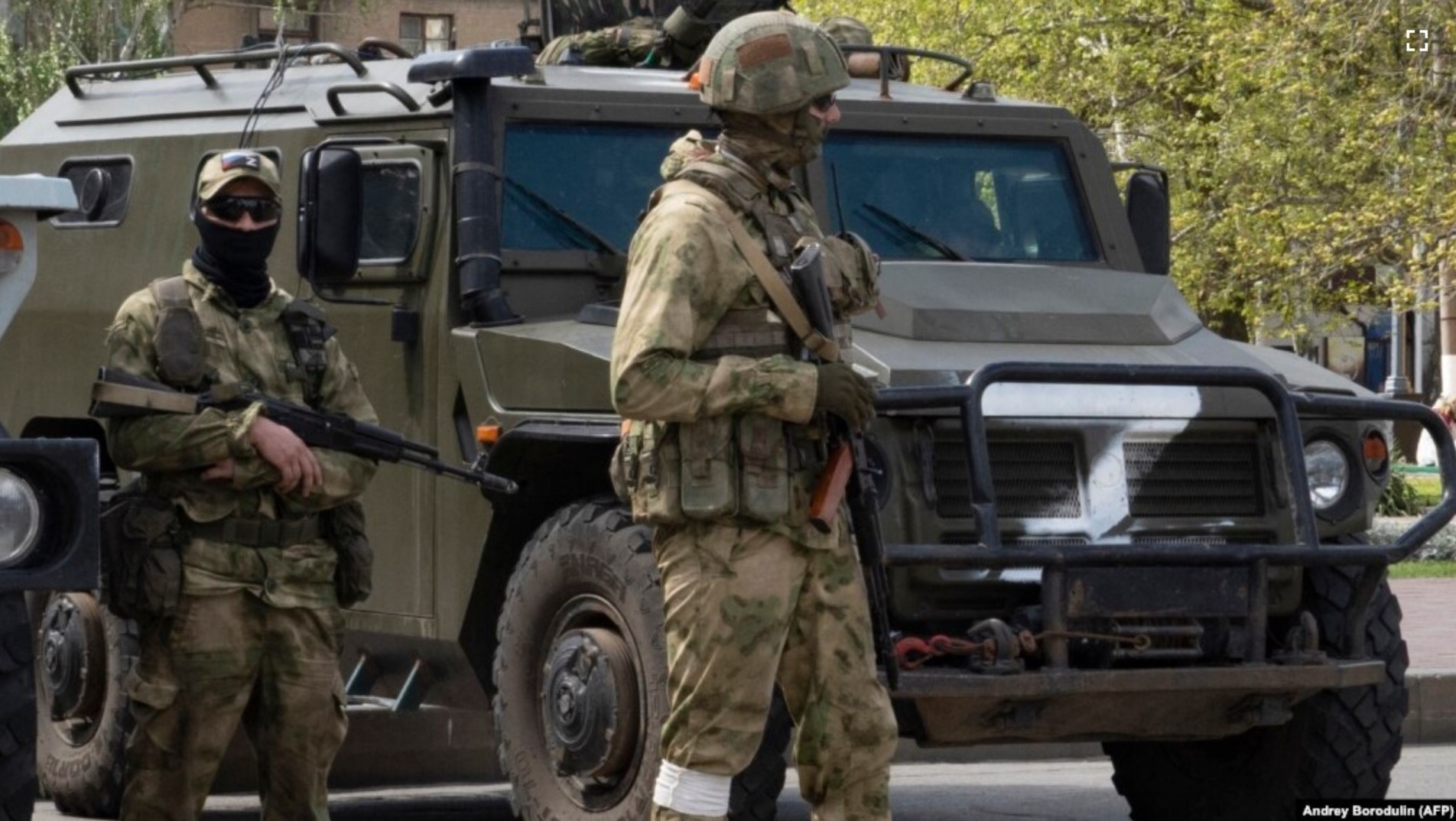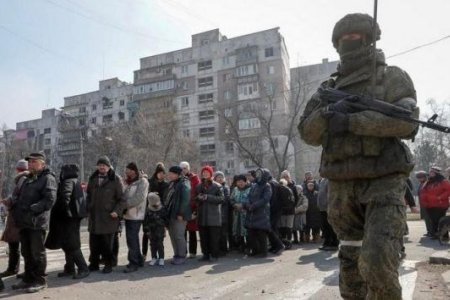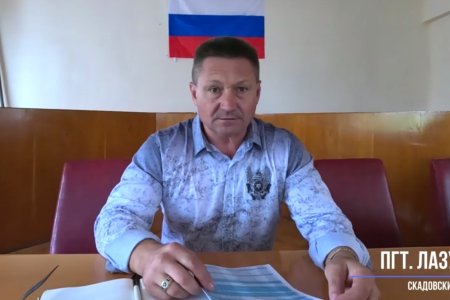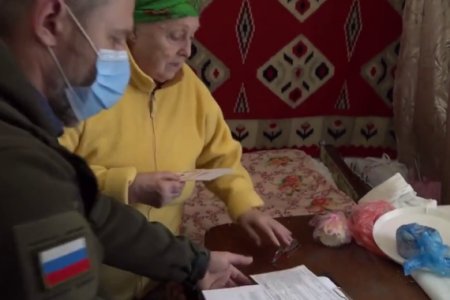
Armed Russian soldiers are reportedly carrying out house-to-house raids in occupied parts of Zaporizhzhia oblast to hunt down those who have not taken Russian citizenship. The move is doubtless linked with Russia’s extraordinarily lawless plan to treat all those Ukrainians who have not taken Russian citizenship as ‘foreign nationals’ in their own land. Such measures are due to be imposed from 1 January 2024, with Ukrainians then placed on the aggressor state’s ‘migration register’. The haste may also, however, be due to the so-called ‘presidential elections’ which Moscow is staging to rubberstamp Putin’s fifth term as ‘president’ and is planning to illegally hold on occupied Ukrainian territory.
The Centre for Journalist Investigations [CJI] has learned from Ukrainians living under occupation of Russian raids in occupied parts of the Melitopol and Polohy districts [raion] of Zaporizhzhia oblast. During them, the Russians check whether people have taken Russian passports, and also demand to see documents confirming ownership of their homes. People are also asked about where they work. These are essentially part of Russia’s notorious ‘filtration’ as people’s telephones are also checked, with the consequences likely serious if they find photos, videos or notes on the phones that indicate a pro-Ukrainian position.
Russia was reported to be carrying out such illegal raids in occupied parts of Donetsk and Luhansk oblasts back in October 2023. All of this follows Putin’s ‘decree’ from 27 April 2023 which envisaged the deportation of Ukrainians from occupied parts of Donetsk; Luhansk; Kherson and Zaporizhzhia oblasts for refusing to take Russian citizenship. Although it was claimed that only those deemed to “post a threat to Russia’s national security” would be deported, the behaviour that was supposed to demonstrate such a ‘threat’ included basic demonstration of loyalty to Ukraine, as well as activities and pronouncements that are a person’s right in any democratic state (more details here).
It had been clear for some time that Russia was stepping up aggressive methods to force people in occupied parts of Kherson and Zaporizhzhia oblasts to accept Russian citizenship. In November, a resident of occupied Tokmak (Zaporizhzhia oblast) told CJI that she had been warned that from the New Year she and her 86-year-old mother could have their home taken from them, or even be ‘deported’ if they don’t take Russian citizenship.
Other residents of Tokmak said that the city was teeming with Russian military who could at any moment demand a person’s documents. Cases were known where the Russians had, at a checkpoint, ripped up a Ukrainian passport claiming that they were, in that way, “speeding up the process of getting normal documents”.
In occupied Melitopol, they are putting pressure on residents via their employers A Melitopol resident told CJI that his enterprise was possibly the last in the city whose owner had not exerted any pressure on employees regarding Russian passports.
Changes have now been forced on all, and the staff were recently called to a meeting told that there were going to be problems with employment if they did not take such documents. All employers had been informed by the occupation ‘employment centre’ that, from 1 January 2024, a decree from Putin dated 25 July 2023 would apply. This demands that any employees who do not have Russian citizenship must undergo mandatory inclusion on Russia’s ‘migration register’. Anyone who refuses Russian citizenship will need to carry a ‘migrant card’ in their own country. Entry on the migration register carries with it the requirement to have fingerprints taken, medical examination, and to fill out a document for temporary refuge or residence. Further confirmation that all of this is aimed at forcing people to accept citizenship is provided by reports from Melitopol residents that in Melitopol, you simply can’t get such a ‘temporary residence’ document, with different pretexts given as to why not.
Employers will have to inform the Russian migration service about all employees who do not have Russian passports, and will face a massive fine for each employee found to not be in compliance with these unlawful demands.
It is likely that many of those who can find a way of leaving occupied territory will be forced to do so. The problem is not in any fears of being accused of collaborating with the invaders, or violation of Ukraine’s Constitution which does not allow dual citizenship. Ukraine’s government passed legislation soon after Russia’s invasion of Crimea that any such acceptance of Russian citizenship is forced and cannot carry any legal consequences.
It can, however, carry very serious, potentially fatal, consequences for Ukrainians, especially for Ukrainian men who can be forced to fight in the invader’s armed forces. It is also noticeable that the only political prisoners whom Russia has agreed to release in exchanges of prisoners have been Ukrainians without Russian citizenship. The last such exchange was, however, back in 2019 and Russia’s behaviour in relation to Ukrainian prisoners of war, civilian hostages and political prisoners has since become entirely brazen, whether or not a person has taken Russian citizenship.
Like in occupied Crimea, Ukrainians who do not take Russian citizenship on other occupied territory can also expect constant scrutiny and harassment from Russia’s FSB and other occupation enforcement bodies.
All of this, both the coercion to take Russian citizenship and deportation or other punishment of those who do not, is of course, in flagrant violation of international law. With only weeks to go, serious reaction from the international community is solely needed, as is the understanding, as demonstrated by Russia’s behaviour that Ukraine is fighting for its very survival against a brutal enemy with genocidal plans.



